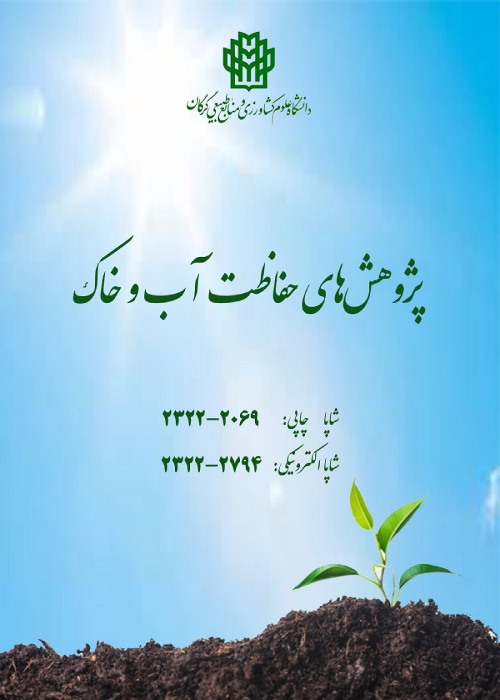Investigating the possibility the Use of Treated Wastewater in phytoremediation of diesel contaminated soil
Phytoremediation is one of the most efficient and cost-effective biological methods for removing contaminants, including petroleum products, from the soil. Understanding the mechanisms of phytoremediation and examining the parameters involved in the phytoremediation process leads to better management and increase the efficiency of this method. Therefore, the aim of this study was to investigate the effect of factors such as diesel concentration, type of irrigation water and type of plant on phytoremediation of diesel-contaminated soil, using Grass pea (Lathyrus sativus L.) and Tall fescue (Festuca arundinacea).
A two-year pot experiment was conducted in greenhouse conditions to evaluate the phytoremediation during 2018 and 2019. The experiment was conducted in a randomized complete block design with three replications. The treatments of this experiment were diesel contaminated soil at two levels of 1.5 and 3% and irrigation water at two levels of freshwater and wastewater (treated municipal wastewater). Drainage water, soil and plants were sampled three months after planting and the amount of diesel in the samples was measured using the gravimetric method. Based on the initial concentration of diesel in the soil, the participation of different factors in diesel removal was determined and compared with each other.
The results showed that the Tall fescue plant reduced the amount of diesel in the soil by a maximum of 62.4 % and a minimum of 47.9 % and the amount of removal diesel in phytoremediation by Grass pea was achieved with a maximum of 63.0 % and a minimum of 44.2 %. Among the diesel removal mechanisms, Phytoextraction mechanism had the lowest participation (2-12%) and Phytodegradation-Rhizodegradation mechanisms had the highest participation (71-84%). The amount of diesel in drainage water was 11-21%. All of D3% treatments were significantly different with D1.5% treatments only in the amount of diesel in drainage water in Tall fescue-2018 experiment and the amount of Phytoextraction in Tall fescue-2019 experiment. In other experiments, no significant difference was observed between the two levels of diesel. Evaluation of the effect of irrigation water quality on diesel removal mechanisms showed that the amount of diesel in drainage in the D1.5%-wastewater-Tall fescue-2019 treatment was significantly less than other treatments. Phytoextraction had the highest value in the D1.5%-freshwater-Grass pea-2019 treatment and the lowest value in the D3%-wastewater-Grass pea-2019 treatment, no significant difference was observed between the two types of irrigation water in other experiments. In the Phytodegradation-Rhizodegradation mechanisms, only D1.5%-freshwater-Tall fescue-2018 treatment was significantly different from other treatments.
The results showed that changes in factors such as plant species, diesel concentration and type of irrigation water can have a significant effect on diesel removal, but the degree of effectiveness of each factor is different depending on the diesel concentration, the treatment degree of irrigation water, and the resistance of plants and soil microorganisms against diesel toxicity.
- حق عضویت دریافتی صرف حمایت از نشریات عضو و نگهداری، تکمیل و توسعه مگیران میشود.
- پرداخت حق اشتراک و دانلود مقالات اجازه بازنشر آن در سایر رسانههای چاپی و دیجیتال را به کاربر نمیدهد.


